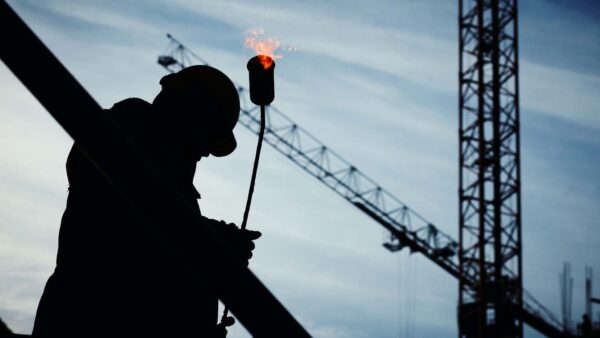Insurance companies set premiums based on how much they are likely to spend to pay claims. It stands to reason, then, that the best way to control premiums for your roofing business is to avoid claims if possible, and to limit the cost of any claims that you do make.
Great! But what kind of claims should you be watching out for as a roofing contractor?
Our commercial insurance partners have experts with years of experience dealing with roofing claims, and we asked them to break it down for us. What are the most common claims for roofers? Well, it’s not that simple. They had a few questions too:
What kind of work do you do?
Most roofing contractors specialize in two ways:
1. Residential or commercial?
First, you likely specialize in either residential or commercial roofing. This makes a big difference in the number and kind of claims you are likely to make.
-
Flat commercial roofs seem safer than sloped roofs, but traditionally, work on these roofs has led to a number of claims, typically for fire losses. In recent years, with the roofing industry moving gradually away from hot applications, fire claims have come down, but continue to be the most common for commercial roofers. Water claims are quite common as well.
-
Sloped residential roofs may be high-risk from a safety perspective, but in Ontario, injuries to workers are typically covered by WSIB, so they would not affect your contractors insurance premium. Residential roofers are most likely to experience liability claims for water damage.
Did you know?
As a roofing contractor, you take the greatest of care to ensure that all the work you do is done to the highest quality standards. This is key to reducing the likelihood of claims. Unfortunately, claims sometimes happen anyway. For example, if you replace a roof, and six months later, your customer finds water damage that was caused by water getting in through the roof, you will likely get pulled into the claim, and most courts would assign at least partial liability to you, even with no evidence that your work was substandard.
2. New installation or repair/replacement?
The other factor that affects the likelihood of claims is whether you work on brand new construction or re-roofing/repairing roofs on older buildings. Whether you are a residential or commercial roofer, working on existing structures is more likely to lead to claims. The reason is that working on an existing structure requires you and your employees to work around existing structures and even existing roofs that may be outdated, worn and/or improperly installed by someone else. The chances of flaws or weaknesses in a rebuilt or repaired roof are much higher than in a brand new one.
Common claim scenario
You are working on a commercial job using torch on membrane to re-roof an older warehouse. A worker leaves the torch untended for a moment and it ignites some dried leaves. Workers are able to get to safety, but the fire spreads to the entire roof, destroying all of your roofing materials and tools and damaging the old wood roof. Firefighters are called, and extinguish the fire before it spreads beyond the roof, but their work causes additional water damage to the building.
| Your lost equipment and materials: | $65,000 |
| Damage to the building: | $125,000 |
| Total claim: | $190,000 |
Tips for avoiding claims
As mentioned above, the most common insurance claims for roofers are related to fire. To reduce fire risk:
- Before you start the job or ignite any heat sources, make sure the area is thoroughly cleaned of any debris.
- Make sure heat sources are always tended by someone.
- Ensure that there is a working fire extinguisher within 6 metres of every worker on the site.
Roofers insurance usually includes coverage for:
- General liability (protecting your business from legal action against you)
- Tools and equipment (if they are damaged, destroyed or stolen)
Other coverage to consider:
- Commercial auto insurance – If you use your own personal vehicle for work, make sure to let your broker know. If you have one or more vehicles that belong to the business, you need a commercial auto insurance policy.
- Commercial property insurance – If your business has a physical location, you need property insurance to protect your office or shop and the stuff that you keep there. Also covers you if someone is hurt while visiting your location.
- Cyber and data breach insurance – a very broad insurance which protects you in the event that you are hacked and personal client data is exposed, or if your system is infected or encrypted by a virus.
- Legal expense insurance – includes unlimited legal advice in relation to disputes you may have with clients or employees or answers to theoretical “what if” questions. Can also provide funding towards any legal action you take as a result of a dispute.
- Installation floater – covers any materials due to be installed whilst in transit or at the work site awaiting installation. For example, roofing materials are lost in a fire while awaiting installation.
Learn more about Ontario roofer insurance.
(Our thanks to Steve Schmelzle from RSA Insurance, one of our trusted contractors insurance partners, who agreed to share his expertise for this piece.)
Looking for contractor insurance?
Speak with a Mitch Insurance broker today to get a quote on Ontario contractor insurance. Learn more >
Call now
1(403)8000267








This article is a fantastic resource for roofing contractors like me! Understanding the common claims and how to avoid them is invaluable in our line of work, where prevention truly is key.
The distinction between residential and commercial roofing and the specific types of claims each might encounter is eye-opening. It’s clear that knowing the nuances of your specialization can greatly impact your approach to risk management.
I appreciate the reminder that even when we do our best to ensure quality work, unexpected claims can still arise. That example of a customer discovering water damage months later highlights the importance of thoroughness in our work.
The insight about the differences between new installation and repair/replacement work also sheds light on the challenges and potential pitfalls we face.
Overall, this article is an excellent guide for roofing contractors looking to navigate the insurance landscape and reduce the likelihood of claims. Thanks for sharing these valuable insights!